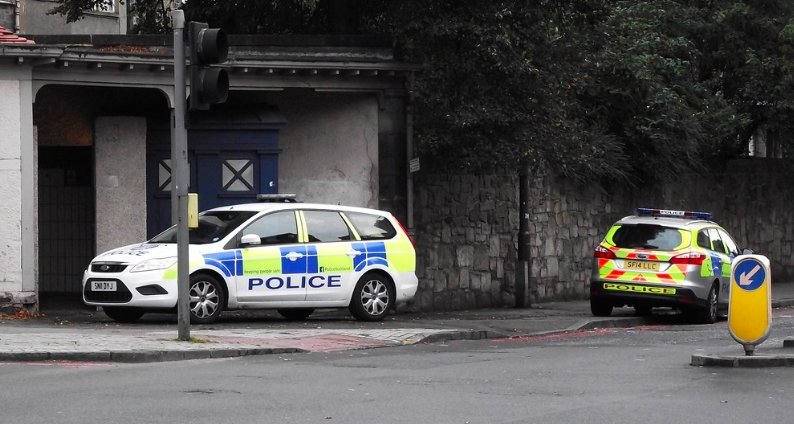A new report from His Majesty’s Inspectorate of Constabulary in Scotland (HMICS) raises serious concerns over the lack of focus on road policing by Police Scotland. Despite a clear vision for road safety, the report highlights significant resource gaps and operational challenges that could be contributing to the rising number of deaths and serious injuries on Scotland’s roads.
Road Safety at Risk Due to Staff Shortages
HMICS’s latest thematic report paints a troubling picture of road policing in Scotland. It claims that while Police Scotland has a clear vision for improving road safety, it is failing to deliver effectively due to a combination of staffing shortages, outdated operational practices, and a lack of focus on road policing.
One of the most pressing issues highlighted is a significant reduction in the number of dedicated road policing officers. The report notes that many officers are also required to attend court—sometimes without providing any evidence—while others are tied up escorting abnormal loads, an operation that no other UK force currently undertakes. These competing demands have left road policing stretched thin.
HMI Craig Naylor, who oversaw the report, acknowledged the professionalism of officers and the broader challenges facing the force, including increased mental health calls. However, he also noted that the resources dedicated to road safety and preventing criminals from using the roads had diminished significantly. “This applies to both specialist road policing officers and to local policing officers,” he said.

The Rising Toll: 155 Killed, 1,930 Seriously Injured in 2023
The report follows alarming statistics that underscore the need for urgent action. In 2023 alone, 155 people lost their lives on Scotland’s roads, with an additional 1,930 suffering serious injuries. Over the past decade, there has been a 63% reduction in the identification of road traffic offences, raising concerns about the effectiveness of current road policing efforts.
The lack of visible road policing presence on Scotland’s streets has left many drivers feeling that there are few deterrents to dangerous driving behaviour. Officers often lack the resources to conduct pursuits or adequately respond to incidents, and this absence of deterrence is seen as a contributing factor to the rise in road traffic collisions.
Drug Driving and Understaffed Shifts: A Growing Concern
Another key issue highlighted in the report is the growing threat of drug driving. Police Scotland has acknowledged that this is a significant risk to road safety but has been unable to effectively tackle it due to insufficient trained personnel and a lack of forensic services capacity. This gap in resources means that even when drug driving is suspected, police are often unable to carry out the necessary tests to apprehend offenders.
Night shifts have also been identified as a particular area of concern, with significant shortages of staff available to cover these crucial periods. The lack of officers on duty during the night hours compounds the difficulty in responding to accidents, dangerous driving, and other road-related crimes.
Comparisons with England and Wales: Gaps in Technology and Strategy
In comparing Police Scotland’s road policing practices with those in England and Wales, the inspectorate found further areas for improvement. Notably, Police Scotland is the only force in the UK that does not accept dash cam footage from the public as part of its strategy for reporting road traffic offences. This practice is common in other UK forces, allowing the public to actively contribute to road safety efforts by submitting video evidence.
The report also suggests that Police Scotland could benefit from adopting educational courses as an alternative to prosecution, similar to the practices in England and Wales. These courses, often offered as a way to educate drivers on road safety and reduce reoffending, could provide a more constructive approach to tackling minor traffic violations and freeing up resources for more serious cases.
Recommendations for Reform
HMICS’s report includes 13 key recommendations aimed at addressing the deficiencies in Scotland’s road policing operations. One of the most important recommendations is for Police Scotland to review its commitment to and investment in road policing, ensuring that sufficient resources are allocated to meet the growing challenges on Scotland’s roads.
The report also calls for increased recruitment and training for road policing officers, as well as the adoption of new technologies and methods, such as dash cam evidence and driver education programs, to enhance enforcement and prevent road traffic offences.
The Road Safety Framework: A Vision Without the Means to Deliver
The Scottish Government’s Road Safety Framework to 2030 lays out an ambitious vision for improving road safety in the country, yet the inspectorate suggests that Police Scotland is not equipped to deliver on its part of the framework. While the force has established strong partnerships with other agencies, the lack of dedicated resources and trained staff means that the vision of improved road safety may not be realized without significant investment and reform.
Next Steps: Focus on Air Support and Armed Policing
The thematic report on road policing is just the first in a series of inspections being conducted by HMICS. The next areas of focus will be air support and armed policing, two other high-priority areas for law enforcement in Scotland. These reports will offer further insight into the challenges facing Police Scotland and provide additional recommendations for reform.


















